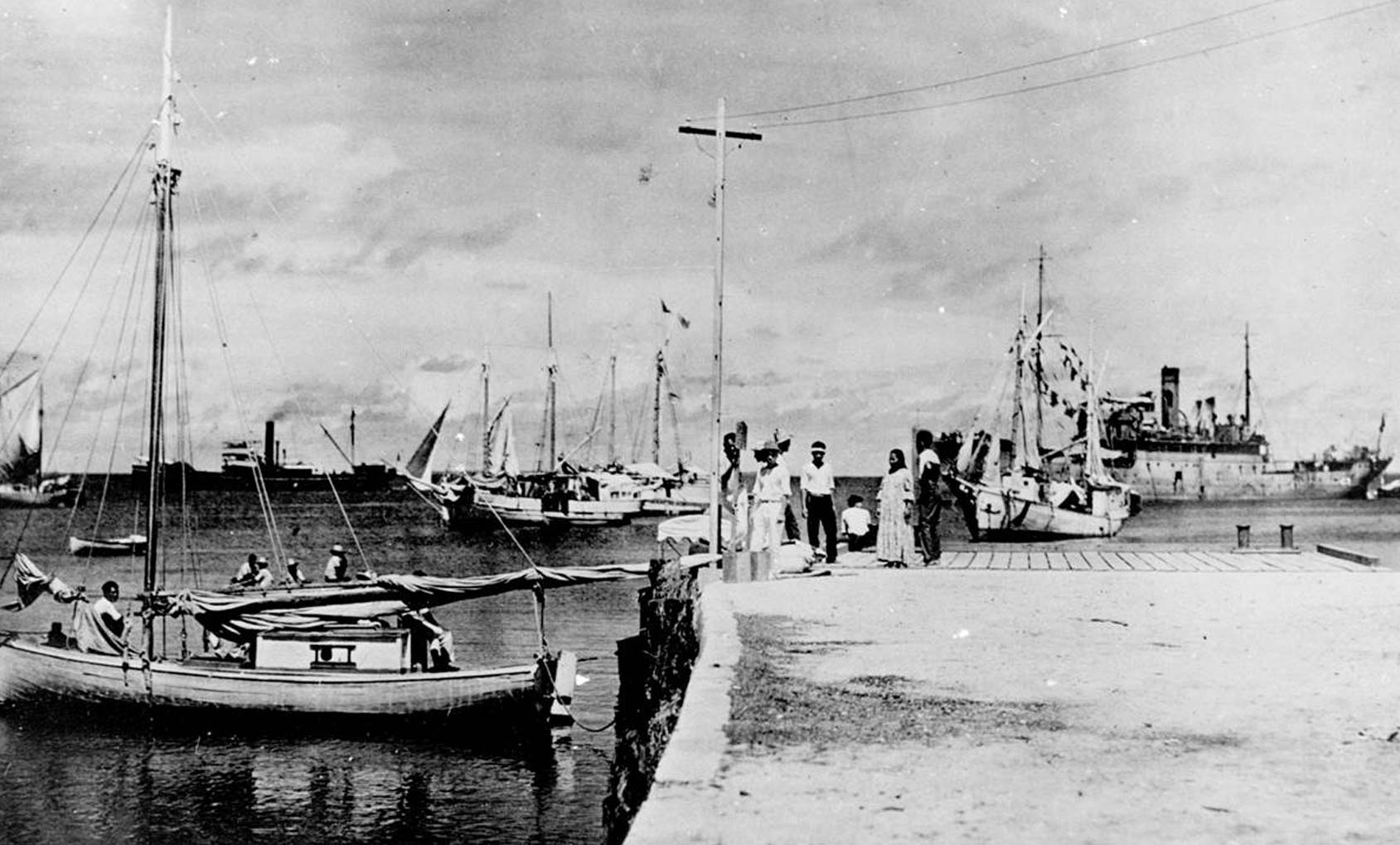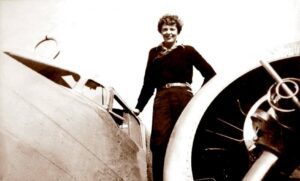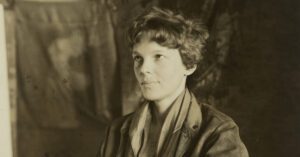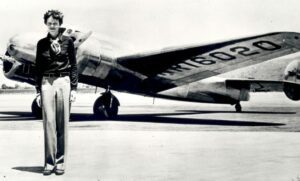A newly discovered photograph suggests legendary aviator Amelia Earhart, who vanished 80 years ago on a round-the-world flight, survived a crash-landing in the Marshall Islands.
The photo, found in a long-forgotten file in the National Archives, shows a woman who resembles Earhart and a man who appears to be her navigator, Fred Noonan, on a dock. The discovery is featured in a new History channel special, “Amelia Earhart: The Lost Evidence,” that airs Sunday.
Independent analysts told History the photo appears legitimate and undoctored. Shawn Henry, former executive assistant director for the FBI and an NBC News analyst, has studied the photo and feels confident it shows the famed pilot and her navigator.
“When you pull out, and when you see the analysis that’s been done, I think it leaves no doubt to the viewers that that’s Amelia Earhart and Fred Noonan,” Henry told NBC News.
Earhart was last heard from on July 2, 1937, as she attempted to become the first woman pilot to circumnavigate the globe. She was declared dead two years later after the U.S. concluded she had crashed somewhere in the Pacific Ocean, and her remains were never found.
ut investigators believe they have found evidence Earhart and Noonan were blown off course but survived the ordeal. The investigative team behind the History special believes the photo may have been taken by someone who was spying for the U.S. on Japanese military activity in the Pacific.
It is not clear how Earhart and Noonan could have flown so far off course.
Les Kinney, a retired government investigator who has spent 15 years looking for Earhart clues, said the photo “clearly indicates that Earhart was captured by the Japanese.”
Japanese authorities told NBC News they have no record of Earhart being in their custody.
The photo, marked “Jaluit Atoll” and believed to have been taken in 1937, shows a short-haired woman — potentially Earhart — on a dock with her back to the camera. (She’s wearing pants, something for which Earhart was known.) She sits near a standing man who looks like Noonan — down to the hairline.
“The hairline is the most distinctive characteristic,” said Ken Gibson, a facial recognition expert who studied the image. “It’s a very sharp receding hairline. The nose is very prominent.”
Gibson added: “It’s my feeling that this is very convincing evidence that this is probably Noonan.”
The photo shows a Japanese ship, Koshu, towing a barge with something that appears to be 38-feet-long — the same length as Earhart’s plane.
For decades, locals have claimed they saw Earhart’s plane crash before she and Noonan were taken away. Native schoolkids insisted they saw Earhart in captivity. The story was even documented in postage stamps issued in the 1980s.
“We believe that the Koshu took her to Saipan [in the Mariana Islands], and that she died there under the custody of the Japanese,” said Gary Tarpinian, the executive producer of the History special.
“We don’t know how she died,” Tarpinian said. “We don’t know when.”
Josephine Blanco Akiyama, who lived on Saipan as a child, has long claimed she saw Earhart in Japanese custody.
“I didn’t even know it was a woman, I thought it was a man,” said Akiyama. “Everybody was talking about her — they were talking about in Japanese. That’s why I know that she’s a woman. They were talking about a woman flyer.”
It is not clear if the U.S. government knew who was in the photo. If it was taken by a spy, the U.S. may not have wanted to compromise that person by revealing the image.




